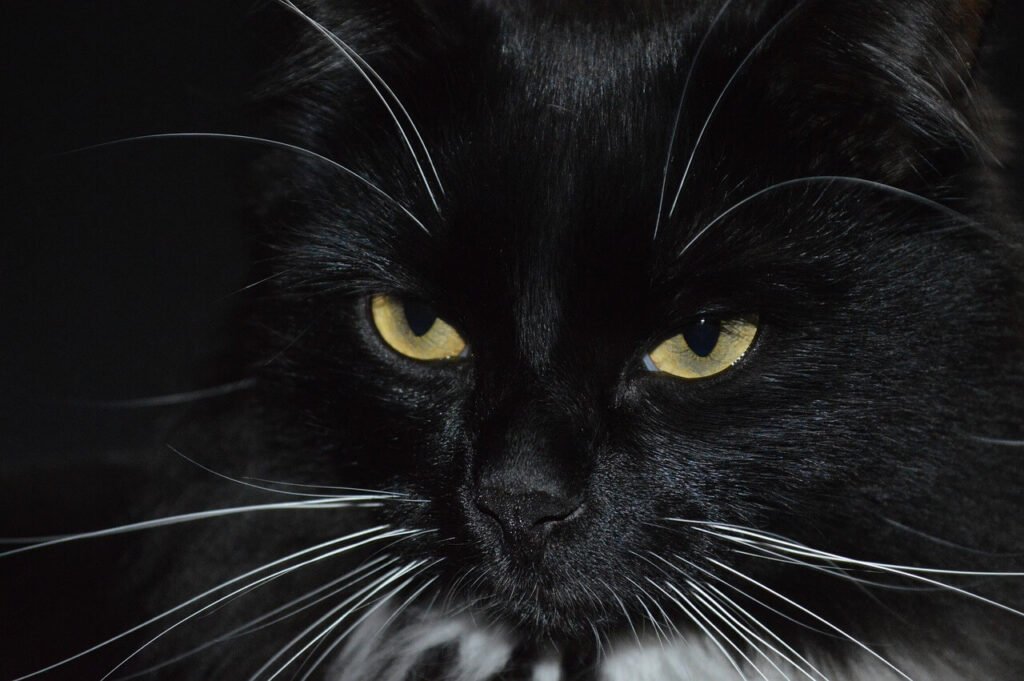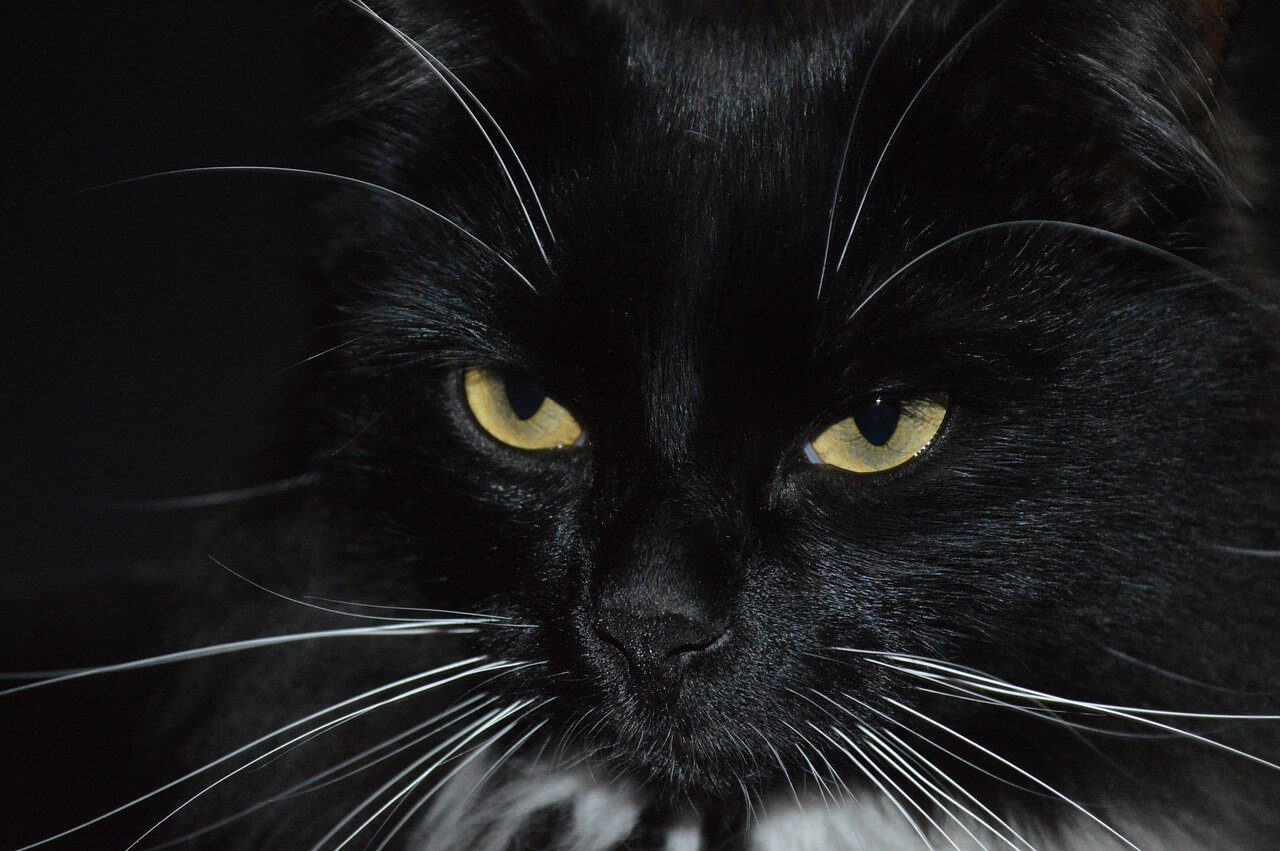How Long Do Tuxedo Cats Live? Unveiling the Secrets of Their Lifespan
Tuxedo cats, with their striking black-and-white coats resembling formal attire, have captured the hearts of cat lovers worldwide. These charming felines are not just a fashion statement but also beloved companions known for their playful personalities and unique charm. One question that often arises among prospective and current tuxedo cat owners is: How long can I expect my tuxedo cat to live? Understanding their lifespan is crucial for providing the best care and ensuring they live happy, healthy lives. In this blog post, we’ll explore the factors that influence a tuxedo cat’s longevity, tips for enhancing their lifespan, and much more.
Factors That Influence the Lifespan of a Tuxedo Cat
The lifespan of a tuxedo cat depends on several key factors. While genetics play a significant role, environmental and lifestyle elements also contribute significantly to their overall health and longevity. Below are some critical aspects to consider:
Genetics and Breed Background
Tuxedo cats are not a specific breed but rather a coat pattern found in various cat breeds. This means their genetic makeup can vary widely, influencing their lifespan.Diet and Nutrition
A balanced diet rich in essential nutrients supports a strong immune system and reduces the risk of chronic diseases.Veterinary Care
Regular check-ups and vaccinations help detect and prevent health issues early, ensuring your cat stays healthy for years.Living Environment
Cats living indoors typically live longer than outdoor cats due to reduced exposure to dangers like traffic, predators, and diseases.Exercise and Mental Stimulation
Physical activity and mental engagement are vital for maintaining a healthy weight and reducing stress-related illnesses.
By paying attention to these factors, you can significantly improve your tuxedo cat’s chances of living a long and fulfilling life.
Common Health Issues in Tuxedo Cats
While tuxedo cats generally enjoy good health, they are not immune to certain medical conditions. Being aware of potential health issues allows you to take preventive measures and seek timely treatment. Here are some common concerns:
Obesity
Weight gain is a frequent issue in indoor cats, leading to problems like diabetes and joint pain.Dental Disease
Poor oral hygiene can result in gum disease, tooth decay, and even systemic infections.Urinary Tract Infections (UTIs)
These infections are common in cats and require prompt veterinary attention to avoid complications.Kidney Disease
Older cats are particularly susceptible to kidney issues, which can affect their quality of life if untreated.Respiratory Problems
Allergies or infections may cause breathing difficulties, especially in environments with poor air quality.
Addressing these health concerns proactively through proper care and regular vet visits can help ensure your tuxedo cat remains in excellent condition throughout its life.
Check this guide 👉What Makes a Tuxedo Cat So Special? Best 7 Expert Tips!
Check this guide 👉The Charm of the Tuxedo Cat Personality: Best 7 Tips!
Check this guide 👉The Enchanting World of Tuxedo Ragdoll Cats: Best 7 Tips!

Lifestyle Factor | Impact on Lifespan |
|---|---|
Balanced Diet | Supports overall health and prevents obesity |
Regular Vet Visits | Detects and treats illnesses early |
Indoor Living | Reduces risks from external hazards |
Daily Playtime | Promotes physical fitness and mental well-being |
Stress-Free Environment | Lowers the risk of stress-related illnesses |
Tips to Extend Your Tuxedo Cat’s Lifespan
Taking proactive steps to care for your tuxedo cat can make a world of difference in their longevity. Here are practical tips to keep them thriving:
Provide High-Quality Food
Choose premium cat food tailored to their age, size, and activity level.Keep Them Hydrated
Ensure fresh water is always available to support kidney function and overall hydration.Create a Safe Space
Designate areas where your cat feels secure and free from disturbances.Engage in Interactive Play
Use toys and activities to stimulate both their body and mind.Monitor Behavioral Changes
Sudden shifts in behavior could indicate underlying health issues requiring attention.
Implementing these strategies will go a long way in keeping your tuxedo cat healthy and content.
Signs of Aging in Tuxedo Cats
As tuxedo cats grow older, they undergo natural changes that can impact their daily routines. Recognizing signs of aging helps you adapt their care accordingly:
Decreased Activity Levels
Older cats tend to sleep more and engage less in energetic play.Changes in Appetite
Senior cats may eat less or show preferences for softer foods.Vision or Hearing Loss
Age-related sensory decline can affect their interaction with the environment.Joint Stiffness
Arthritis or mobility issues might become noticeable as they age.Grooming Habits
Aging cats may groom themselves less frequently, leading to matting or skin issues.
Understanding these signs allows you to provide targeted care during your tuxedo cat’s golden years.
Mental Stimulation for Tuxedo Cats
Tuxedo cats are intelligent and curious by nature, which makes mental stimulation an essential part of their care routine. Keeping their minds engaged not only prevents boredom but also promotes a longer, healthier life. Here are some ways to keep your tuxedo cat mentally sharp:
Interactive Toys
Toys that respond to your cat’s movements or make sounds can keep them entertained for hours.Puzzle Feeders
These toys challenge your cat to work for their food, stimulating their problem-solving skills.Window Perches
Providing a view of the outdoors satisfies their curiosity about birds, squirrels, and other wildlife.Rotating Toys
Switching out toys every few weeks keeps things fresh and exciting for your feline friend.Training Sessions
Teaching tricks or commands using positive reinforcement strengthens your bond while engaging their mind.
By incorporating these activities into your tuxedo cat’s daily routine, you’ll ensure they stay mentally active and happy throughout their life.
Grooming Needs of Tuxedo Cats
While tuxedo cats are generally low-maintenance when it comes to grooming, regular care is still important to keep them looking and feeling their best. Proper grooming not only enhances their appearance but also contributes to their overall health. Consider the following grooming tips:
Brush Their Coat Weekly
This removes loose fur and reduces hairballs, especially in shedding seasons.Trim Their Nails Regularly
Overgrown nails can cause discomfort or even injury if left unchecked.Clean Their Ears
Check for dirt or wax buildup and gently clean with a vet-approved solution.Bathe Only When Necessary
Most cats groom themselves, but occasional baths may be needed for particularly messy situations.Inspect Their Teeth
Look for signs of tartar buildup or gum inflammation during routine check-ups.
With consistent grooming habits, you’ll help your tuxedo cat maintain a shiny coat and good hygiene, contributing to their long-term well-being.
Creating a Stress-Free Environment
Stress can have a significant impact on your tuxedo cat’s health and lifespan. A calm and nurturing environment ensures they feel safe and secure at all times. Below are some strategies to reduce stress in your home:
Provide Hiding Spots
Cats love cozy nooks where they can retreat when feeling overwhelmed.Use Calming Scents
Products like lavender sprays or pheromone diffusers can create a soothing atmosphere.Maintain a Routine
Cats thrive on predictability, so stick to regular feeding and play schedules.Limit Loud Noises
Sudden or constant noise can startle your cat and increase anxiety levels.Introduce New Pets Gradually
If adding another pet to the household, allow time for slow and supervised introductions.
By prioritizing your tuxedo cat’s emotional well-being, you’ll foster a peaceful environment that supports their physical health and longevity.
Frequently Asked Questions About Tuxedo Cats’ Lifespan
What is the average lifespan of a tuxedo cat?
The average lifespan ranges from 12 to 16 years, though some can live into their late teens or early twenties with proper care.
Do tuxedo cats live longer than other cats?
There’s no scientific evidence suggesting tuxedo cats live longer; however, their diverse genetic background might offer resilience against certain hereditary conditions.
How can I tell if my tuxedo cat is aging prematurely?
Premature aging signs include excessive lethargy, rapid weight loss, or persistent illness despite treatment.
Is it safe for tuxedo cats to go outside?
While outdoor exploration benefits some cats, indoor living tends to be safer and extends their lifespan by minimizing risks.
Can spaying or neutering increase my cat’s lifespan?
Yes, spaying or neutering reduces the risk of reproductive cancers and behavioral problems, contributing to a longer life.
Conclusion: Cherishing Every Moment with Your Tuxedo Cat
In conclusion, understanding the lifespan of a tuxedo cat empowers you to give them the best possible life. By focusing on nutrition, regular vet care, and creating a nurturing environment, you can maximize their time with you. Remember, every purr, playful leap, and cozy nap is a testament to the love and care you provide. Whether your tuxedo cat lives 12 years or 20, cherish each moment together—they’re truly one of a kind.
Dog Tapeworm Life Cycle: Best 7 Expert Tips! – Learn how tapeworms infect dogs, spot symptoms, and break the cycle with expert prevention strategies.
Anxious Cat Body Language: Best 7 Expert Tips! – Learn to spot signs of stress, understand triggers, and help your cat feel safe and relaxed.
Anxious Dog Body Language: Best 7 Expert Tips! – Learn to spot signs of anxiety, respond effectively, and help your dog feel safe and secure.
Is Breeding Dogs Bad? Best 7 Expert Tips! – Explore the ethics, benefits, and risks of dog breeding to make informed decisions for a better future.





